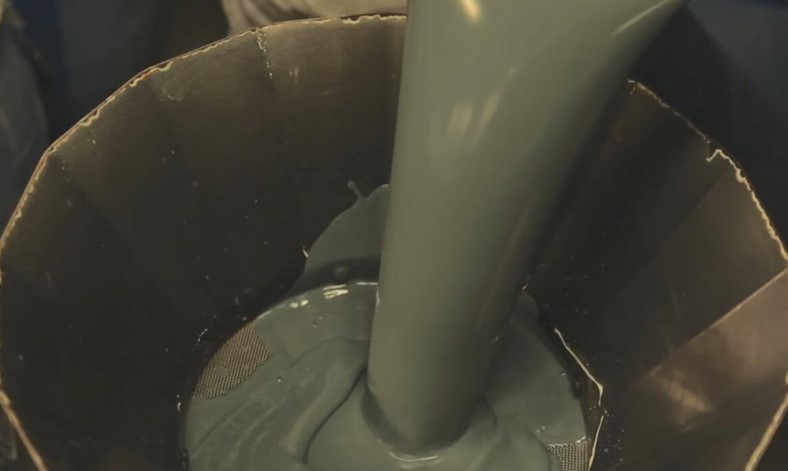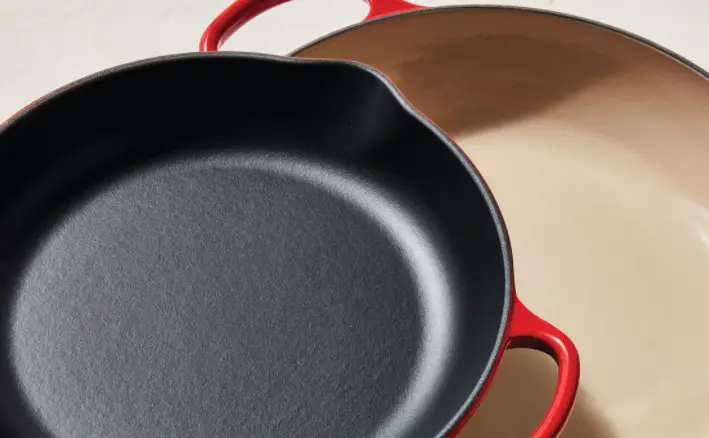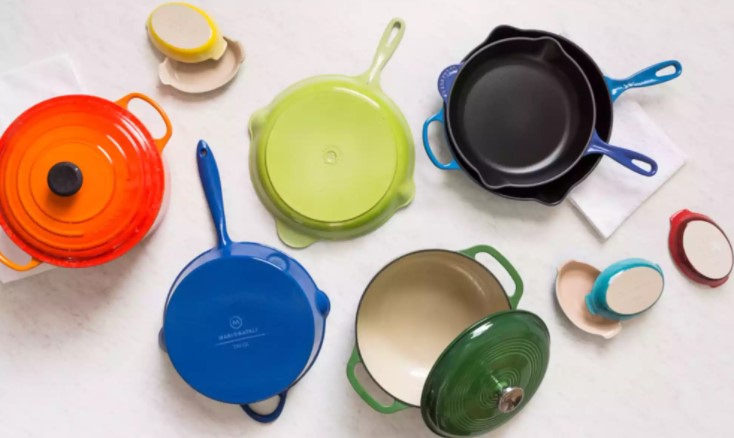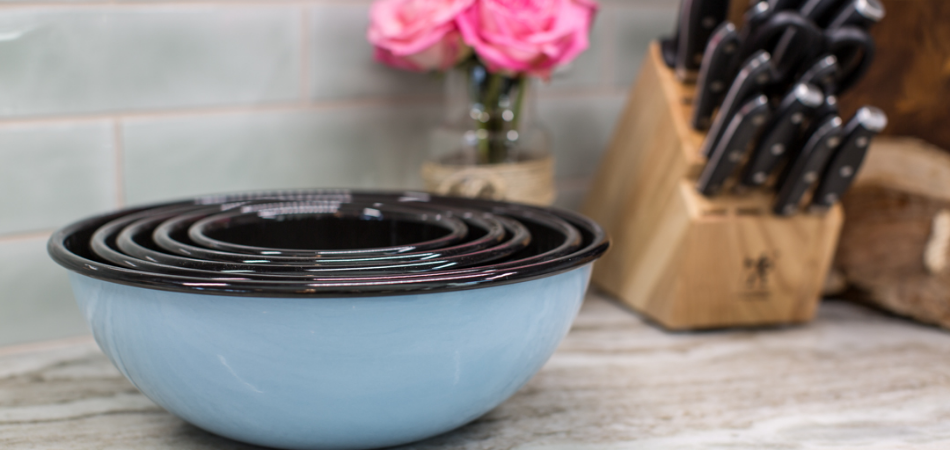Enamel creates the vibrant and glossy look of many cookware products. It is created by mixing finely ground natural minerals with borosilicate glass at high temperatures. The result is an extremely hard, glossy, and brilliantly colored product that is highly resistant to use and wear. However, does enamel rust?
No, enamel cookware will not rust because it has the properties to prevent rust. However, if you leave it in water for a longer period, it tends to go rusty. In such a situation, you can easily get rid of the rust using rust removal spray and wipe it off with a cloth.
Though the evolution of modern cookers has left enameled cast iron behind, enamel remains a popular choice in kitchenware due to its heat retention properties.
It remains the best, and the ceramic insulation helps a lot with preventing rust. But if the iron gets exposed to water, it will begin to rust and break through the barrier. Below, you will find out more about enamel and the right way to use it.
Contents
What is Enamel?
Enamel (known as vitreous enamel) refers to a glasslike, shiny, and usually, non-transparent material mainly used as a decorative coating or protective material on metalware, ceramic or glassware. Enamel could also be applied in paints, varnishes, and paints.

Enamel is a substance from the blending of powdered glass to a substrate. Once enamel is dried, it brings forth a complex and lustrous finish.
Usefulness of Enamel
Enamel (enamel-coated steel or material) is used chiefly to guard against decay, degeneration, wear, decomposition, and many others. Some of our finest kitchenware, like tumblers, mugs, bowls, etc., were all made from enamel. They are generally called enamelware.
The durability of enamel is due to firing it at a very high temperature of about 850℃. When enamel passes through this temperature, it does not only become durable, but it’s also suitable for use on some appliances such as laundry machines, marker boards, and signage. More so, some shiny paints appear glossy to the eyes. Because enamel generally leaves a bright lustre on any surface, it is applied.
Where Can Enamel Be Applied?
- Enamel being a hard substance, can survive much physical stress. That is why it is mainly applied to metalware. Some include gas cylinders, electric stoves, ovens, bonfire, fridge & freezers, or dishwashers.
- They also conduct heat properly because it is made with a steel base metal. However, Enamels are not applied to microwaves because they have a metal core and rim.
- Enamels are also used in the production of paints because they can improve the glossiness of the color, have quicker drying times, and pose an excellent heat resistance.
Does Enamel Rust?
Enamel is primarily produced to protect materials from rust. A well-treated enamel provides coverage and rust protection to any ware in which it is applied. They are generally designed to act as rust-proof. When steel elements are covered with enamels, they are put there to protect the base material from rust and make the ware aesthetically pleasing.

Generally speaking, rust occurs in most metalware or steel corrodes. Although enamelware does not scratch and rust easily, it is complex and durable. However, certain conditions can lead to rust on enamelware. Also, enamel wear can begin to wear and tear over the years of its usage. When enamelware is left in soapy water, slight rusting may occur from under the enamelware’s rim. There is every possibility of rust happening on the surface of enamel-coated steel if the material becomes cracked or chipped and the edge or metalcore becomes bare. However, if rusting occurs on enamel, it does not affect the usefulness or functionality of the enamelware.
The durability of enamelware is mainly dependent on the treatment given. In other words, enamel-coated ware can rust if it is not adequately treated. An enamel-coated steelware will not experience rust as long as the coating on the body remains intact and undamaged. In addition, the color of enamelware can change if substances like vinaigrette are used to clean its surface.
How Does Rust Occur?
Despite being a hard substance, enamel-coated items can experience rust because rust is a natural phenomenon on almost every steel or iron material.
Generally speaking, most metal ware rusts due to a chemical reaction known as oxidation. Oxidation takes place when metals come in contact with moisture or oxygen. In other words, any made of iron is prone to rust the moment it begins to rust when exposed to both water and oxygen for a long time.
Items made of steel or iron appear solid; however, water molecules can still penetrate if there are microscopic pits or cracks on such things.
How To Care For Your Enamelware
High-quality enamelware can last a lifetime if properly cared for, but just like any other metal steel, it can become worn out when subjected to high temperatures and corrosive substances.
The care given to enamelware varies depending on its type and usefulness. For instance, it is not advisable to use vinaigrette on your enamel because it can change your enamel color.

- After washing enamelware, ensure it is adequately dried in the interior and exterior parts to avoid corrosion.
- If rust does occur on your enamelware, you can get rid of the rust quickly by applying a light abrasive cleaner on the affected surface. If your enamelware is damaged, try not to use it for hot beverages and food.
- Ultimately, the two significant ways to prevent rust on your enamelware are by keeping it dry and applying a protective coating (galvanization) to it. Do not throw your enamelware on a hard surface.
Final Thoughts
We have seen that rust is a natural phenomenon bound to occur as long as an item is steel or exposed to moisture. In the case of an enamel-coated item, it is scarce for rust to happen. This is because enamel itself is a protective substance. However, if there is a crack on an enamel-coated item or is subjected to certain physical conditions, rust becomes inevitable.


